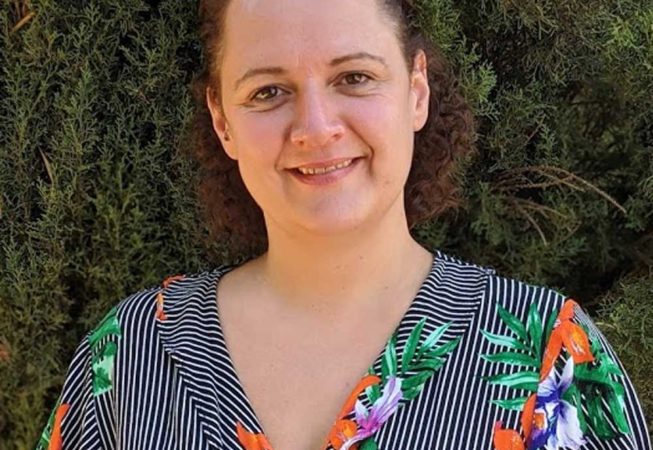A Tough Nut to Crack: Pollination requirements of self-fertile almond varieties
Almond production is highly dependent on successful pollination by honey bees. However, honey bee colonies have been in decline for the past decade (Kulhanek et al. 2017) with beekeepers reporting up to 80% colony losses in the winter of 2018-2019. This has led to continued concern over the sufficient bee supply to fulfill almond pollination needs. A standard recommendation stocking rate for a mature, nut-bearing orchard is 2-2.5 hives with average 8 frames per hive for one acre orchard. In hopes of reducing reliance on bee pollination, growers are planting increasing acreage of new self-fertile varieties such as Independence and Shasta despite lack of research data supporting this assumption although there have been suggestions of providing 0.5-1 colony/acre. Prior data indicates that Independence trees in absence of bees had a 63% lower nut set and 51% lower nut yield. We continue to address the question of bee pollination needs for self-fertile varieties and expand to address specific pollination parameters such as number of bee visits, number of bee flight hours, and determination of optimal stocking rates. Understanding clear pollination requirements of both self-fertile and self-sterile varieties has the potential to alleviate challenges for both growers and beekeepers.
Update from UC Davis E. L. Niño Bee Lab
Elina L. Niño will present research findings from her UC Davis lab. She’ll discuss forage and probiotic supplementation, several aspects of varroa mite control, and regulation of queen reproduction. Elina will describe some of her recently started research projects, including determining the role of probiotics and phytochemical use for improving bees’ immune response. Elina will conclude with a few remarks about her extension program including the thriving California Master Beekeeper Program, established in 2016, as well as the newly developed beekeeping course for veterinarians.
Elina L. Niño is an Extension Specialist for Apiculture with UC ANR UCCE located in the Department of Entomology and Nematology at UC Davis. Through her extension activities, Dr. Niño works to support beekeepers and the beekeeping industry. She serves as the research liaison on the CSBA Board and as a member of the Pollinator Workgroup for the Almond Board of California. Her lab also offers a variety of beekeeping courses and educational opportunities for beekeepers, future beekeepers, other agricultural professionals, and the general public. Most recently, her lab has implemented the first California Master Beekeeper Program. Dr. Niño’s research interests encompass basic and applied approaches to understanding and improving honey bee health and particularly honey bee queen health. Ongoing research projects include understanding queen mating and reproductive processes, testing novel biopesticides for efficacy against Varroa mites, and evaluating almond orchard management practices with a goal of improving honey bee health.

